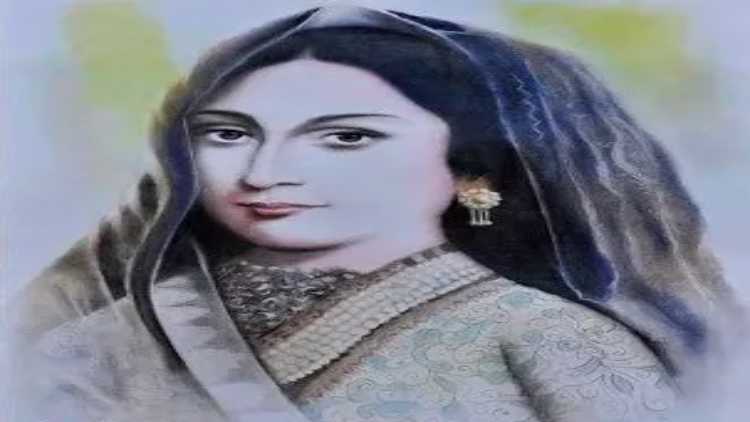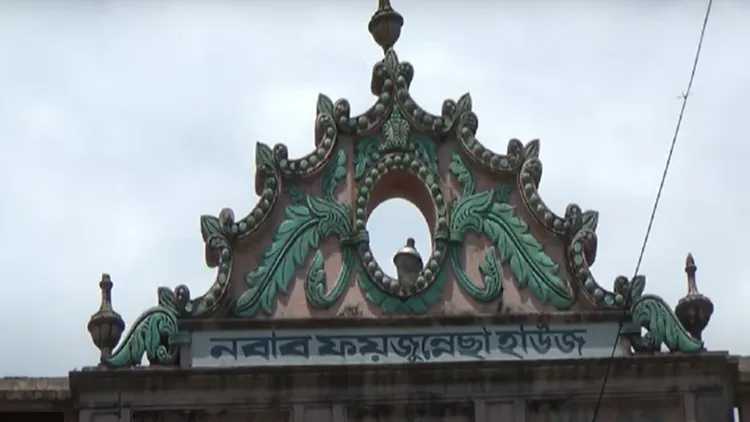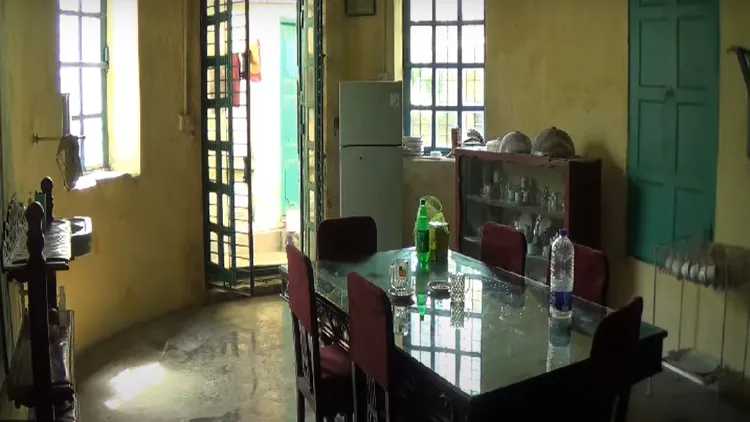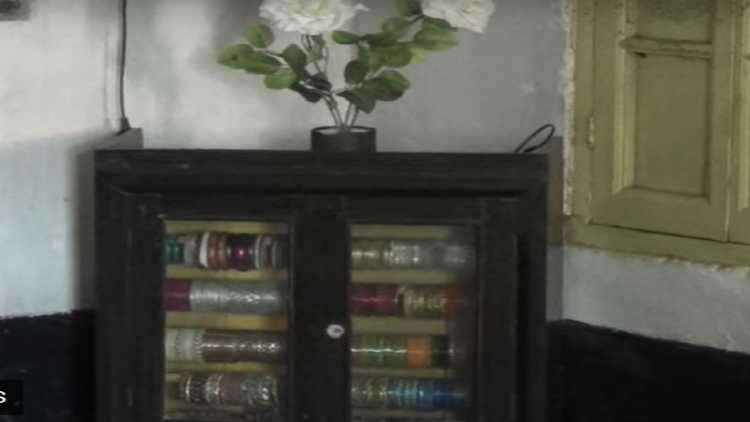
Saquib Saleem
Famous feminist Urdu poet Kishwar Naheed writes, “In the times before us a woman getting published was a revolutionary act.” Rarely do we appreciate the fact that what our foremothers and forefathers had done to bring us to this point of civilization. It’s often overlooked that progress is a journey and people before us had fought for the right we now take as granted.
Faizunnesa Choudhurani, a Muslim woman zamindar (landlord) in 19th century colonial Bengal, was recommended by the District Magistrate Douglas to Queen Victoria for being awarded an honour for her social work. In a letter written to the officials in London, Douglas mentioned that the title of Nawab was suitable for Faizunnesa.

Nawab Faizunesa's portrait
The news that a Muslim woman has been recommended for a masculine title enraged the orthodox as well as so called liberal Muslims of Bengal. They wrote a petition to Queen Victoria and demanded that a woman should not be bestowed upon with the title of Nawab, since it is solely meant for men.
Considering this petition, Queen Victoria awarded Faizunnesa with the title of Begum, a feminine title generally used for a Nawab’s wife. It must be kept in mind that the Muslim society upto this point of time would not accept a masculine title for a woman and even the women rulers of Bhopal, one of the largest princely state in colonial India, used Begum, and not Nawab, as title.

Writing in bengali on Nawab Faizunnesa's palace
The episode took a rather interesting and revolutionary turn when Faizunnesa turned down the title of Begum conferred by Queen Victoria. She argued that being a successful ruler of an estate and a tax paying subject of the crown she could not be discriminated against on account of being a woman. 
The issue snowballed into a major controversy. Faizunnesa would not bow down in front of the religious, social and cultural orthodoxy. Bengali Muslims were forcing the government to not to award the title of Nawab. In the end the British Parliament had to intervene and resolve the matter in favour of Faizunnesa. Thus, in 1889 Faizunnesa became Nawab Faizunnesa. It was a rare achievement and a major win in face of patriarchal Bengali Muslim society.

Nawab Faizunnesa's Dining room
Faizunnesa born in 1834 took divorce after five years of marriage in 1865 with Mohammad Gazi Choudhuri on account of him being polygamous. It was a rebellious move for a Muslim woman of mid-nineteenth century to not accept status of a second wife. Moreover, in another act of rebellion, she took her former husband to court in order to claim anomaly. From her father and former husband Faizunnesa received an estate over which she lived as a single mother of her two daughters.
Faizunnesa established the Bengal’s first school for Muslim girls in 1873. The medium of instruction was Bengali, another novel idea for Bengali Muslims who considered Persian and Urdu as superior languages. The Bengali culture was closer to her heart and she would not accept a persianized culture to get social acceptance in elite Muslim.

Nawab Faizunnesa's bangles
In 1876, she published the first complete Bengali book written by a Muslim woman, RupJalal. In its introduction she claimed that the ‘fiction’ was inspired by her own life. The male protagonist of the story is a prince who marries two women. RupJalal talks about the desires, physical and emotional, of a woman when her husband, or lover, does not attend to her. As a Muslim woman proficient in Arabic, Persian, Sanskrit, and Bengali her choice of Bengali to write and teach shows her love for the Bengali culture.
Faizunnesa’s life is an inspiration for the present day women.
